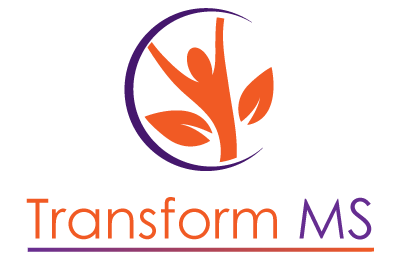The Sleep-Brain Connection: How Rest Supports Detox and Long-Term Brain Health
Today we are obsessed with brain health – and so we should be! Whether its a multiple sclerosis, stress, anxiety, dementia or just normal aging, everything we can do to protect the brain is an investment in great quality of life over the long term. Did you know that sleep is one of the most important strategies for a healthy brain?
We all know we’re supposed to get more sleep. It’s the thing we blame when we can’t remember where we put our keys, when we feel kind of “meh.” But what you might not realize is that when you are off in dreamland, something truly remarkable is happening inside your brain
Introducing: the glymphatic system. Never heard of it? Don’t worry—you’re not alone. This is a fairly new player in the brain health game, and it’s a total game-changer.
So… What the Heck Is the Glymphatic System?
As the name would suggest it is a mash-up of “glial” (the support cells in your brain) and “lymphatic” (the drainage system your body). Put them together and you’ve got your brain’s own waste-management crew—that works the night shift, while you’re sleeping, to clear out toxins and metabolic debris. Think of it as your brain’s very own detox system.
Simply put, your brain is working hard all day, making memories, solving problems which creates metabolic debris – and then there are toxins from food, the environment, medications etc and finally it is bombarded by junk from inflammation and even beta-amyloid proteins—the compounds that are linked to Alzheimer’s So, at night when you’re asleep the glymphatic system works to flush out that waste. But here’s the twist: this system only really kicks into high gear while you’re asleep. That’s right—no sleep, no cleanup.
Why Should You Care?
If you’ve ever woken up after a terrible night’s sleep feeling groggy, foggy, and generally draggy, you’ve had a glimpse of what happens when your glymphatic system doesn’t get a chance to do its thing. The new research shows us that:
-
Sleep deprivation is linked to a buildup of neurotoxic waste in the brain.
-
Chronic poor sleep may increase the risk of neurodegenerative diseases like Alzheimer’s, Parkinson’s and multiple sclerosis
-
Conditions like migraines, metabolic syndrome, and even diabetes may be linked to how well your brain clears out toxins.
In other words: your glymphatic system is a pretty big deal for brain health—and quite possibly for whole-body health, too.
What Happens When Things Go Wrong?
Not surprisingly, when your glymphatic system doesn’t work properly, there can be trouble. Research has linked poor glymphatic function to:
-
Neurodegenerative conditions – Alzheimer’s, Parkinson’s, and multiple sclerosis.
-
Cognitive decline and brain fog.
-
Mood disorders and increased mental distress.
-
Potentially impaired metabolic health, including a higher risk of diabetes-related cognitive issues.
It’s worth noting that while a lot of this research started in animals, and human studies are confirming similar patterns— our biology is a bit more complex.
Can You Boost Your Glymphatic System?
Great question. While we can’t exactly “supercharge” this system with a magic pill the good news is that basic, common-sense lifestyle strategies really do help – some of these might sound familiar!
-
Prioritize Deep Sleep.
Aim for 7–9 hours of good-quality sleep every night. It’s not just the hours that count—it’s the deep, restorative stages where your brain gets busy with cleanup. -
Sleep Position Matters.
Fun fact: research suggests that sleeping on your side (as opposed to your back or stomach) may enhance glymphatic flow. So yes, the fetal position may be your brain’s favorite! -
Stay Active.
Regular exercise supports both sleep quality and overall brain health—and even help glymphatic function. -
Dial Down Stress.
Chronic stress can wreck your sleep. Practices like mindfulness, deep breathing, or even just a pre-bedtime ritual can help calm your nervous system – your castor oil pack to the abdomen really helps here too! -
Make your bedroom a sleep sanctuary.
Cool, dark, quiet. No TV, cell phones or other electronics (charge them in the bathroom – you will still hear your alarm, I promise!) -
Be Mindful of Toxins.
While your glymphatic system helps clear waste, reducing your exposure to environmental toxins (think air pollution, processed food additives, and unnecessary meds) helps lighten the load.
The Bottom Line
So tonight, when you’re tempted to binge-watch just one more episode or scroll endlessly on your phone, remember: your brain’s clean-up crew is waiting to clock in. Let them do their job—and wake up feeling clearer, brighter, and ready to take on the day.
How’s your sleep these days? Could it be the missing link in your health journey?
If you’re curious about tackling sleep issues that might be holding your health hostage —I’d love to help. Reach out to book a consultation , and let’s work together on supporting your brain from the inside out.

